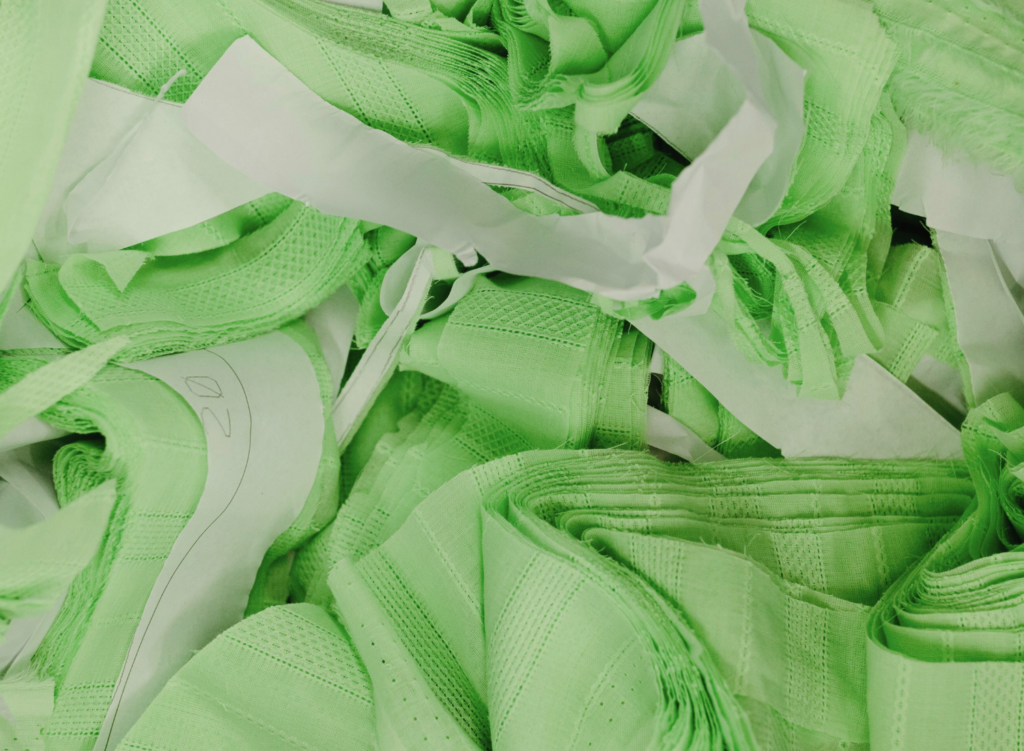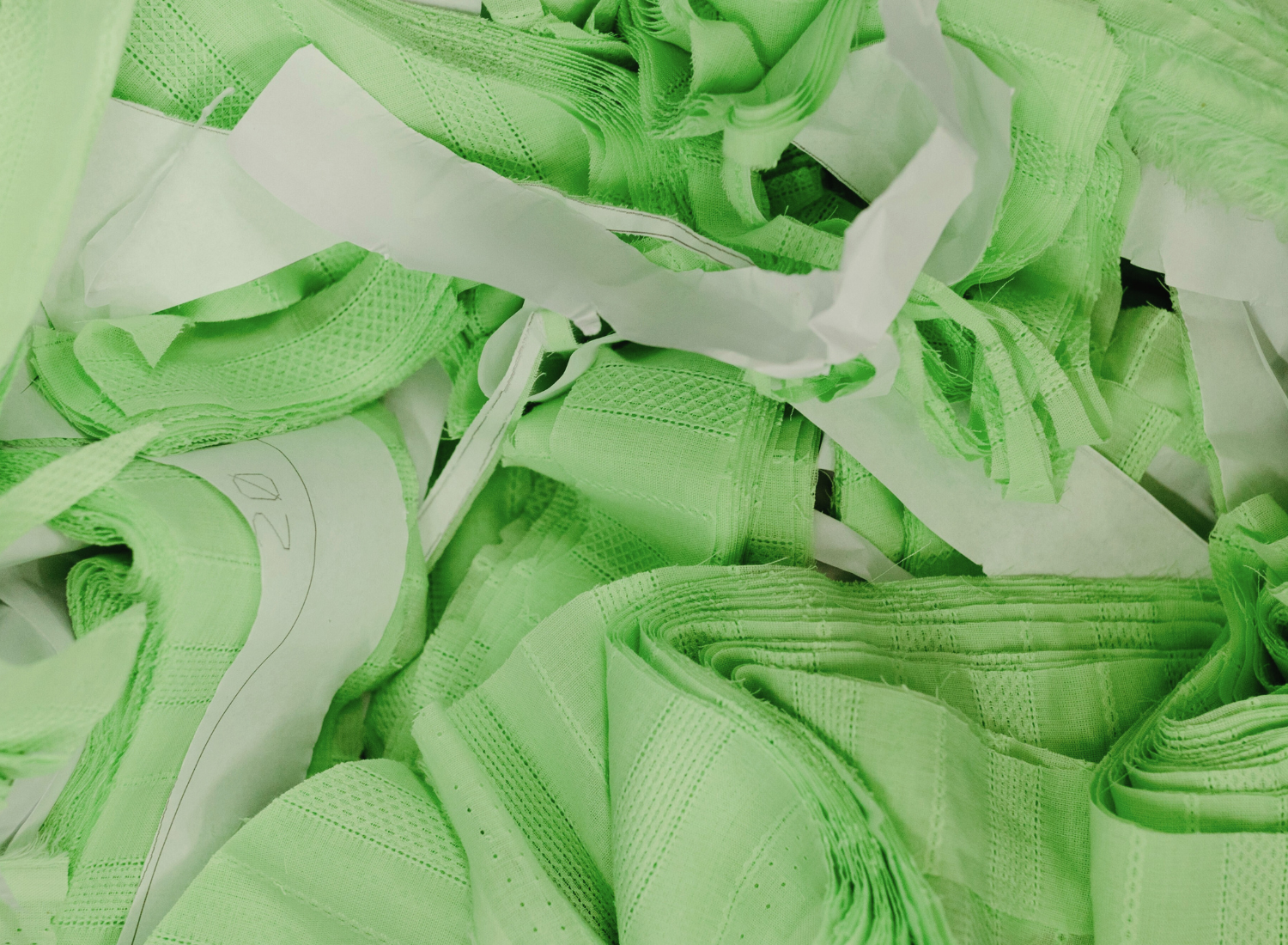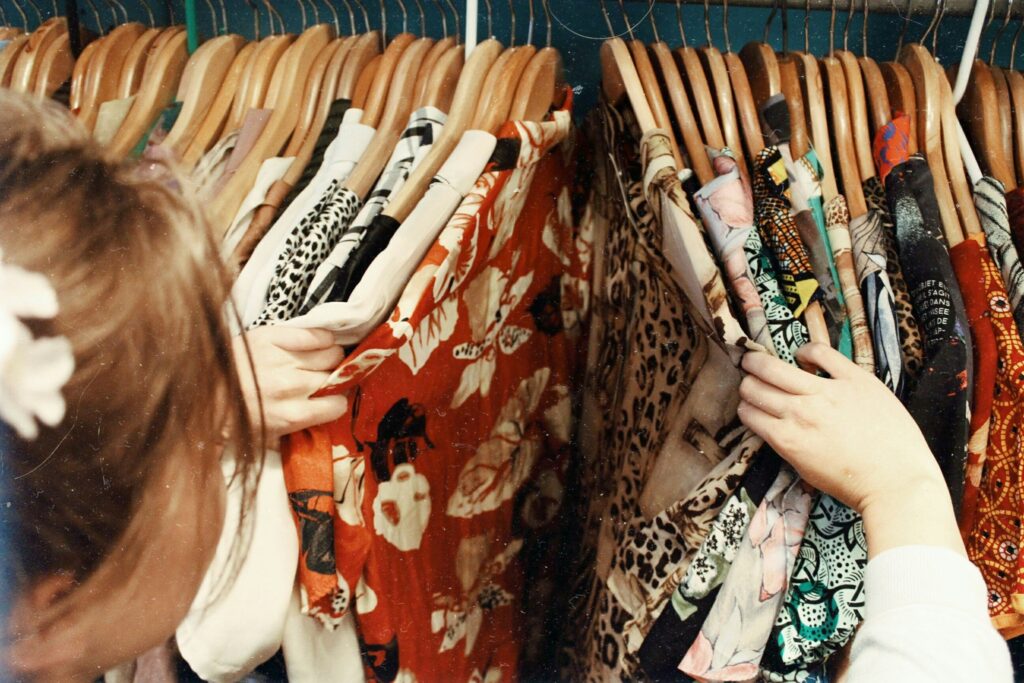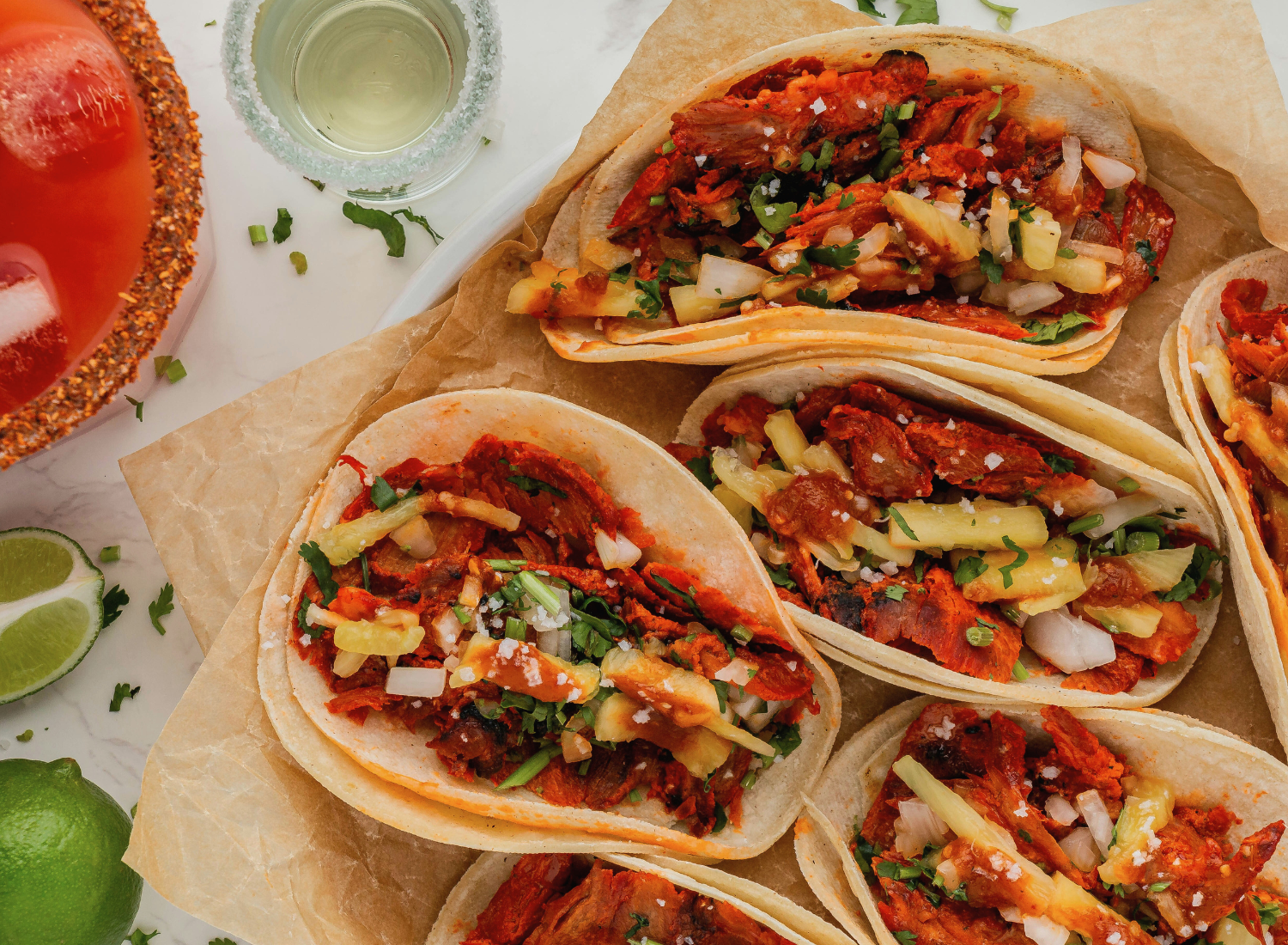WRITTEN BY JENNA HUBBARD

In today’s consumer landscape, the allure of fast fashion’s affordability and on-trend garments comes at a steep cost of ethical and environmental considerations. Fast fashion thrives on a rapid production cycle of new trends dropping each week, fueled by low-cost labor and resource-depleting practices. This relentless pursuit of affordable trends contributes to exploitative labor conditions, environmental degradation, and a culture of disposability.
As the unfortunate impacts of fast fashion become too detrimental to ignore, there’s a growing imperative shift towards sustainable clothing options, embracing ethical and sustainable fashion. In an era dominated by fast fashion’s allure of affordability and trend-chasing, however, the concept of sustainable fashion often carries a stigma of being overly expensive. But behind the illusion of seemingly high price tags lies a compelling reality: investing in sustainable fashion is not only economically and ethically sensible but also financially responsible.
Embracing Ethical and Sustainable Processes
The Use of Non-Toxic Materials
One of the cornerstones of sustainable fashion starts with the use of non-toxic materials that are not only safe for the environment but for the people wearing them. One example of this is the use of organic cotton. Organic cotton is grown without the use of synthetic pesticides or fertilizers, which greatly reduces the ecological footprint of textile production. In addition to this, eco-friendly dyes that are derived from natural sources help to further minimize environmental impact while ensuring the health and safety of the consumers.
Impact on Fair Labor Practices
Beyond the use of ethical materials, sustainable fashion puts people first by encompassing fair labor practices that uphold the safety and rights of workers. Sustainable fashion ensures that their garments are made in certified fair trade factories where workers can experience fair wages, safe working conditions, and opportunities for empowerment. By investing in these brands, consumers not only support the ethical treatment of the workers involved but also help contribute to the economic empowerment of the local communities.
Benefits of Investing in Quality Clothing
Longevity
While the initial cost of sustainable clothing items may include a higher price tag, the investment in these garments in the long run can actually be much cheaper. Quality craftsmanship and premium fabrics result in wardrobe pieces that are meant to stand the test of time, greatly outlasting their fast fashion counterparts by years, if not decades. By choosing quality over instant fashion trends, consumers can reduce the frequency of replacing quickly worn-out garments, ultimately saving money in the long run.
The Use of Premium Fabrics
In stark contrast to its fast fashion counterpart, sustainable fashion places a priority on premium top-tier fabrics renowned for their luxurious feel and exceptional durability. These fabrics can include organic cotton, bamboo, ethically sourced wool, and silk, and provide a harmonious blend of comfort, style, and sustainability.
Opting for garments made from premium materials not only elevates your wardrobe with the latest trends and unparalleled comfort but also provides pieces that are designed to last a lifetime. By investing in these crafted garments, consumers not only indulge in elevated comfort but also help contribute to environmentally conscious and socially responsible fashion practices.
Promoting Circular Fashion
In addition to ethical production and quality craftsmanship, sustainable fashion buries the “throw-away” culture by embracing the concept of circularity – the idea that design, production, and consumption can be regenerated. Circular fashion seeks to minimize textile waste by maximizing resource efficiency through practices like recycling, upcycling, and garment leasing. This helps close the loop on the fashion lifecycle offering a sustainable solution to the industry’s waste problem while also promoting innovation and creativity.
Sustainable Fashion Brands
Sustainable fashion brands like Pact Clothing, Cozy Earth, and American Giant are leading the charge in revolutionizing the industry through their commitment to ethical and sustainable fashion practices and creating buy-it-for-life garments. From sourcing organic, non-toxic materials, to implementing fair labor practices that ultimately create more jobs for local communities, these brands prioritize transparency and accountability throughout every step of their supply chains.
Pact Clothing
Pact Clothing stands out for its commitment to organic cotton, employing Fair Trade Certified factories, and ensuring fair wages and safe working conditions for its workers. However, not only do they prioritize transparency in their supply chain, but they also are careful to utilize eco-friendly dyes and non-toxic materials that are guaranteed to last up to a decade. This helps minimize the environmental impact while delivering fresh styles and comfortable apparel for all.
Cozy Earth
Cozy Earth takes sustainability to new heights with its dedication to luxurious bedding and loungewear crafted from soft, renewable bamboo material. Through innovative manufacturing processes that prioritize resource efficiency and waste reduction, the Cozy Earth brand prides itself on offering premium products that prioritize comfort, durability, and environmental stewardship. In addition to this, the brand also places a strong emphasis on fair labor practices, ensuring that workers and treated ethically and respectfully.
American Giant
American Giant sets itself apart from the rest through its commitment to quality craftsmanship and domestic manufacturing. By producing all its garments locally in the United States, American Giant not only supports the local economy but also reduces its carbon footprint by minimizing transportation emissions. With a strong focus on durable, buy-it-for-life pieces, this brand challenges the disposable nature of fast fashion by promoting a more sustainable approach to clothing consumption.
Final Thoughts
While sustainable fashion may come with a higher price tag upfront, the benefits and long-term financial gain, far outweigh the costs of fast fashion garments. From the ethical and sustainable processes behind eco-conscious brands to the longevity and quality of the garments they produce, investing in sustainable fashion brands is a win-win for consumers, local communities, and ultimately, our planet. By choosing to support these types of brands that place an emphasis on transparency, accountability, and environmental stewardship, consumers can make a meaningful impact on the environment, and help contribute to a more sustainable and equitable fashion industry.

Jenna Hubbard is a seasoned content writer with over a decade of experience crafting engaging and impactful content for diverse audiences. Her expertise spans a wide array of topics including holistic healthcare, technology and AI, lifestyle, and much more. Jenna lives in sunny Southern California (and also on the internet). Outside of work, she can be found hiking along the California coastline and getting lost in a good book.




